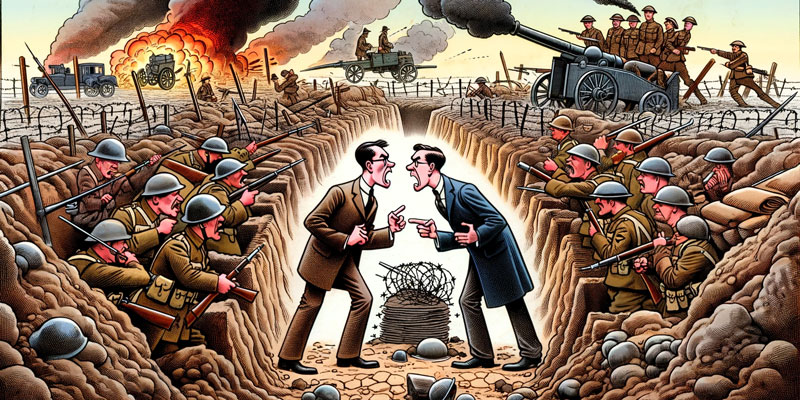
Thinking About National Unity on Memorial Day
Listening to Tim Ferris interview China policy expert Matt Pottinger left me with the impression the United States desperately needs to find a path back to a sense of national unity. Two of Pottinger’s suggestions are particularly relevant:
- The Chinese government is using (or at least was using, before Congress passed related legislation) TikTok to sow division among Americans.
- International actors, whether governments, companies, or other organizations, can have incentive to side with dictatorial regimes like the Chinese Communist Party because, even if nothing else, they provide stability of policy against which to react.
We could argue about whether the second point is short sighted. Tyrannical regimes tend to be predictable only until they’re not. Their guiding lights can be inhuman, so their incentives can surprise even corrupt non-tyrants. Still, the point is well taken: A representative democracy that might change its leadership structure every two or four years can swing in ways a lifelong dictatorship probably won’t.
Two factors mitigate against this problem, and both have been eroding in the United States. One is a commitment to a shared core of cultural principles, and the other is a tight limit on government power. If the world knows, for example, that the vast majority of Americans will insist on economic freedom and global free markets, international actors can consider those principles consistent and act accordingly. Alternately, if those actors can count on Americans and their non-governmental organizations to act in their own interests under a government that has limited ability to dictate terms, then that state of affairs is predictable regardless of election results.
The problem, in this context, is not that the United States is politically dynamic, but that we’ve allowed our periodic elections to become too important. If we want to decide every major issue through government, and at the highest levels, then frequent changes are a liability. The alternative is freedom in a system designed to encourage maximal cooperation, which is what we once had. In that case, human nature, itself, provides the stability.
This morning, on Memorial Day, I reflected on a question somebody recently asked me online: if I’ve ever served in the military. I answered that I never could, for physical reasons, that I would not serve under the current regime (including the Deep State bureaucracy), but that I’ll fight to defend the country from its enemies should the need arise.
How might that position relate to Memorial Day? Did those who’ve given their lives do so in vain? Or am I speaking against my own call for unity? I wish I could answer these questions easily. It seems to me we’ve betrayed those men and women, but then, I can’t speak for them, and their opinions would probably vary, in any event.
If we could define some (important) shared principles, we could unify around them, but I’m not sure we can. I’m not even confident modern Americans could articulate their own principles outside their immediate political positions. For example, Democrats might insist respecting election results has to be the agreed foundation, but everybody would understand that to be a dig at Donald Trump and “MAGA Republicans,” who would be skeptical the principle would hold were the circumstances reversed. Meanwhile, Republicans might put individual freedom on the table as a shared principle, but Democrats would question their positions on a variety of social issues.
Personally, between these two, I think the MAGA Republicans have the better case, but my opinion isn’t very helpful toward the goal of national unity. Indeed, I have to admit that I don’t think national unity is possible on the current field of play. The wary international actors are right to be worried; America’s core principles are up for grabs.
This leaves us no choice but a sort of cultural trench warfare, although not with guns and bombs, but with good will and persuasion. I think each of us must define the core principles that, for us, we should unify around and then win the social debate on their behalf, gathering allies who agree on the narrow point, even if they disagree on various applications. So, the first act is to decide what the narrowest possible core principle is for you, if you could transcend the politics of the day.
In a world where TikTok can be considered a weapon of war, the notion of cultural trench warfare does not seem as much like stolen valor as it may have previously. Wary of the latter, however, as we fight, we should measure our work against the sacrifices of those who gave all, asking if we are vindicating or deprecating their sacrifices.
Featured image by Justin Katz using Dall-E 40.
